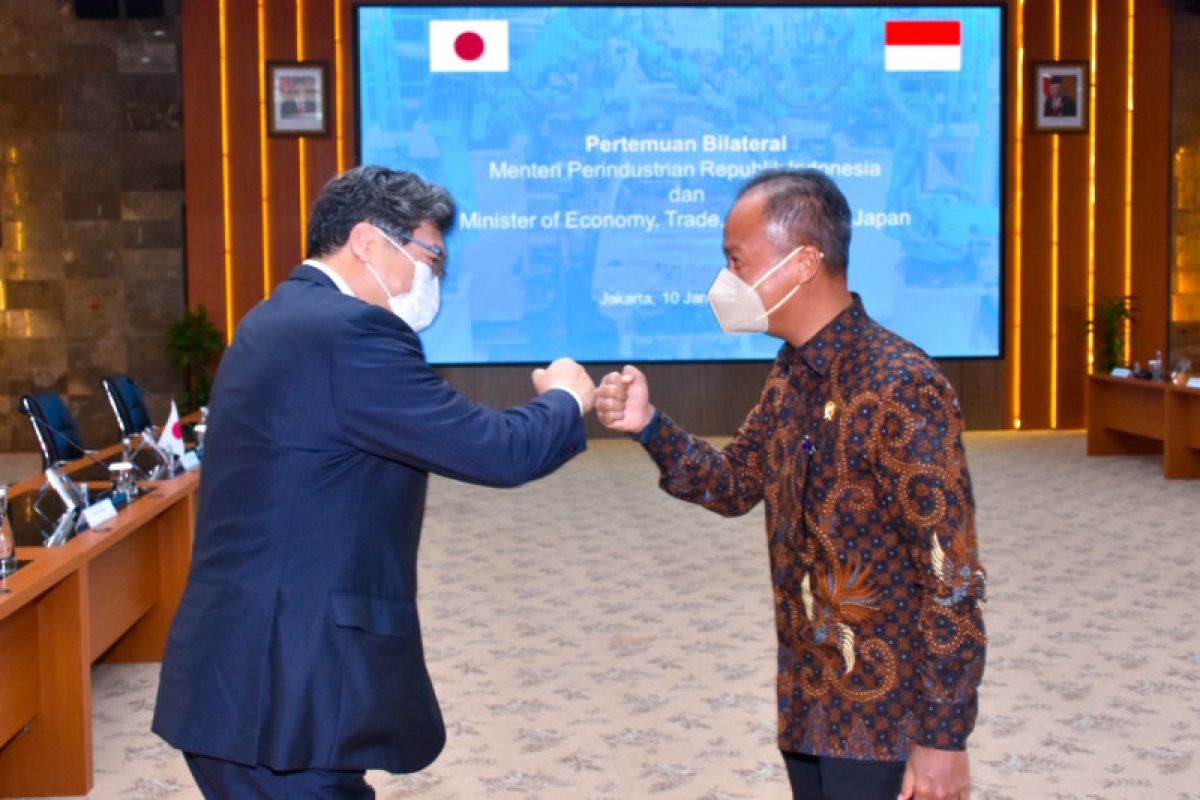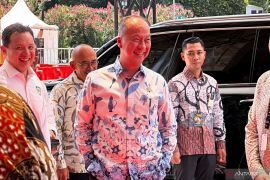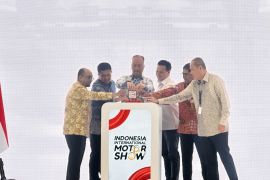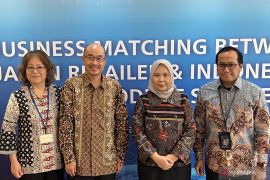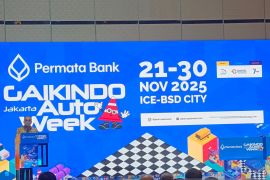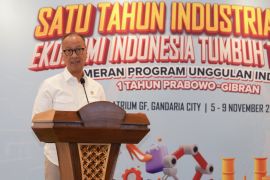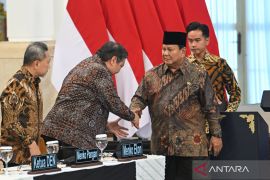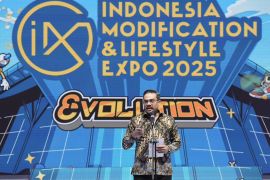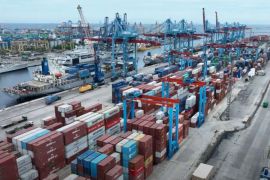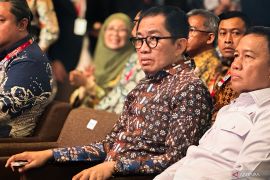We want to ensure that the cooperation program that has been running can continue to be implemented and develop other programsJakarta (ANTARA) - Indonesia and Japan seek to intensify comprehensive economic cooperation, especially in the automotive and digital industry sectors.
The synergy was strengthened through a meeting between Indonesian Minister of Industry Agus Gumiwang Kartasasmita and Japanese Minister of Economy, Trade and Industry (METI) Kichi Hagiuda.
"We congratulate Minister Kichi Hagiuda, who served as METI, on October 4, 2021. We also laud that he considers Indonesia as one of Japan's main trading partners, so Indonesia is the first country to receive an official visit from Hagiuda," Kartasasmita noted in a statement received in Jakarta, Monday.
The industry minister drew attention to several economic cooperation agreements between Indonesia and Japan, including the Indonesia-Japan Economic Partnership Agreement (IJEPA), which was currently in the stage of general review negotiations.
"There is also cooperation with the New Manufacturing Industry Development Center (MIDEC)," he remarked.
In addition, Kartasasmita noted that the Japanese government had proposed economic cooperation in Asian countries called the Asian Japan Investing for the Future Initiative (AJIF).
"Currently, Japan is promoting the AJIF proposal to ASEAN member countries for support," he remarked.
Kartasasmita emphasized that the Indonesian government was grateful for the initiative presented by the Japanese side and sought time for further investigation.
"However, it is hoped that this proposal would be harmonized with the activities included in the cooperation program at the ASEAN regional level," he stated.
The areas of cooperation proposed by Japan include supply chain diversification, introducing the development and utilization of renewable energy technology and energy management systems, as well as cooperation in feasibility studies for quality infrastructure.
Japan also seeks to forge cooperation in the application of digital technology in all levels of society and the development of quality human resources, with the capacity to utilize digital technology. Indonesia also proposed cooperation in implementing industry 4.0 with Japan through the New MIDEC program.
"We want to ensure that the cooperation program that has been running can continue to be implemented and develop other programs," Kartasasmita remarked.
The minister lauded Japan for supporting the development of industrial human resources (HR) in Indonesia that were readied to gain an understanding of digitalization.
Japan is also keen to further bolster cooperation in the automotive industry sector. This technical cooperation project will involve various partner institutions in Japan, such as cooperation with JICA and METI.
“We hope that the Japanese Government's commitment through METI would ensure sustainability and maintain the alignment of achievements between these projects in addition to encouraging increased investment in the automotive industry sector to make Indonesia a production base for export destinations," Kartasasmita stated.
The automotive industry is one of the most important sectors and a major contributor to the GDP. Currently, 21 industrial companies of four-wheeled or more vehicles have a production capacity of 2.35 million units per year by absorbing 38 thousand direct workers.
The total invested investment reaches Rp140 trillion and provides a source of livelihood for the 1.5 million people working along the industry value chain.
“We communicate a lot with automotive manufacturers in Japan. They are still committed to investing in Indonesia, including in the electric vehicle sector," the minister of industry stated.
Currently, Indonesian automotive products were successfully exported to more than 80 countries, with 235 thousand units of CBU (Complete Built-Up) vehicles, valued at Rp43 trillion; 79 thousand sets of CKD (Completely Knocked Down), worth Rp1 trillion; and 72 million units of components, with a value of Rp24 trillion during the January-October 2021 period.
The government targets the exports of CBU vehicles to reach one million units by 2025.
The target can only be achieved if all parties collaborate in increasing production efficiency and product competitiveness through the implementation of industry 4.0 as well as creating a conducive business climate through harmonization and synchronization of regulations in the automotive sector.
Related news: Automotive modification industry projected to grow: Soesatyo
Related news: Indonesia to apply fair play for automotive industry: Minister
Related news: Indonesia's automotive industry facing challenges in online sales
Translator: Sella P, Azis Kurmala
Editor: Sri Haryati
Copyright © ANTARA 2022
